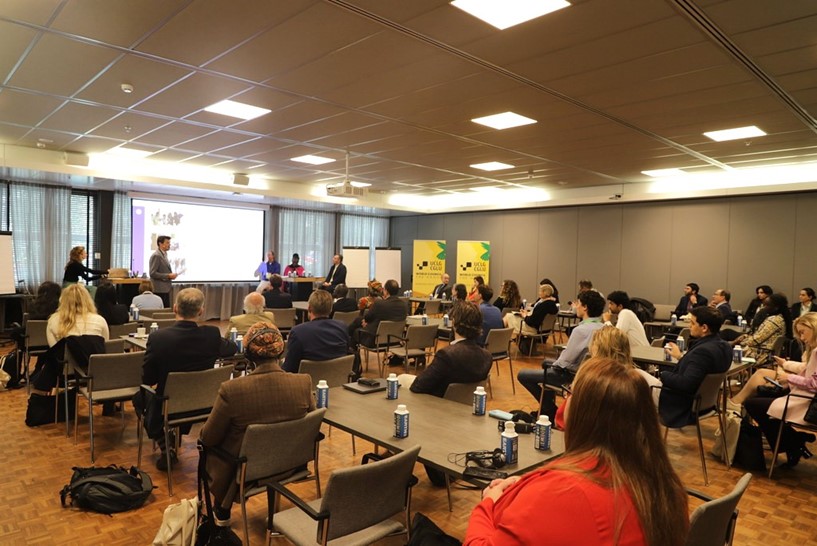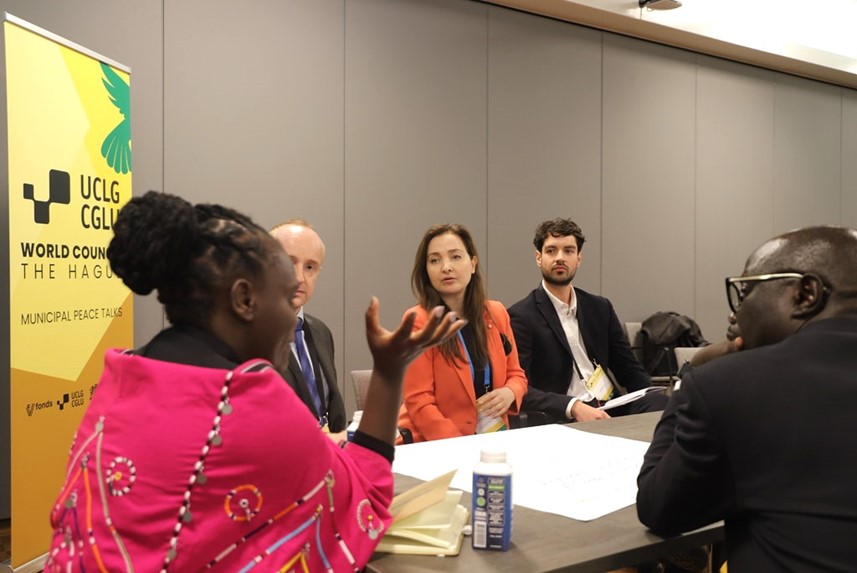From October 8 to 10, the UCLG World Council 2024 took place in The Hague under the theme: “A New Peace Agenda for Future Generations”. Hosted by the City of The Hague and VNG International, this event brought together local government representatives from around the world to talk about sustainable impact of peacebuilding initiatives in local governance.
As part of the World Council, The Hague Academy for Local Governance, the UCLG Peace Prize team from VNG International and UCLG co-facilitated a Peace Learning Event on “Urban Violence and City Diplomacy”. The event highlighted successful peacebuilding and social cohesion projects at a local level, from Brazil to Kenya.
Challenges and Opportunities for Local Governments
A panel of experts explored the wider socio-economic consequences of urban violence, pointing to issues such as poverty, exclusion, lack of economic stability, and distrust in governance.
Investing in social cohesion, safe public spaces, and economic opportunities emerged as possible strategies for reducing violence.
Evidence from peacebuilding initiatives underscores that involvement from all stakeholders, including local governments and civil society, is essential. Grassroots organizations, such as The Legend Kenya, represented by founder Rose Mbone, play a vital role in these efforts. Mbone highlighted the positive outcomes of collaboration between local governments and communities but stressed the need for more resources. “Safer cities are possible, but only if we trust local communities with both the processes and resources.”
The Case of Recife: A Model for Urban Peacebuilding
The workshop spotlighted the case study of Recife, Brazil—a finalist for the UCLG Peace Prize 2022. Faced with high crime rates and social inequality, Recife has taken significant steps toward peacebuilding. Paulo Moraes, Recife’s Executive Secretary of Citizen Security, shared insights into the Recife’s Compaz Community Centres, which serve as the cornerstone of the city’s urban peace strategy. These centers provide safe spaces for sports, arts, education, and public services, with a focus on children and youth from vulnerable neighborhoods, fostering stronger community bonds and social infrastructure.
Since these centers opened, Recife has seen a notable reduction in violent crime, setting an example for community-led social cohesion initiatives. Plans are underway for 29 more high-crime Brazilian cities to receive federal funding to establish similar community centers in the coming years.
As Paulo Moraes notes, “Compaz is only the beginning, not the end of our journey to urban peacebuilding.”
Looking Ahead: Strengthening Peacebuilding Efforts
A key takeaway from the event was the importance of building collaborative networks among cities facing similar challenges, allowing them to share best practices and develop solutions together. As Dion van den Berg from PAX for Peace concluded, “What we’ve seen today isn’t new; aspects of Compaz may already exist elsewhere. What’s needed is a network of cities with community centers to build on these efforts collectively.”



